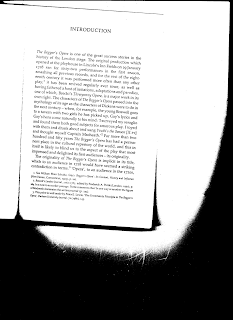Penny for the guy! - Entertainment
Penny for the guy!
VADA debuts an eerie and brilliant show with The Threepenny Opera
byJuliana Serrano
| |
| |
The show, first written in 1928 by German dramatist Bertolt Brecht and based on John Gay's 1728 The Beggar's Opera, is an ironic satire of the political state of Victorian England. Penned as a Marxist critique of the capitalistic world, The Threepenny Opera was supposed to be the opera of the beggars who could not go to the traditional, opulent opera of the time.
Even though the writer of Threepenny intended the opera as a mockery from beginning to end, one of its most enjoyable aspects is its mostly realistic storyline - at least until the very end - and its very tangible, very applicable message.
The story centers around an amoral, anti-heroic bandit named Macheath, or "Mac the Knife," who marries Polly, the juvenile and rebellious daughter of a shop owner, Mr. Peachum, who has power over the beggars of London. In addition to following this relationship, the play also centers on the attempts to capture Macheath, who is chased throughout the story. The plot explores the question of morality: more specifically, whether a shop owner who takes advantage of the beggars' plight for his own profit is more immoral than is a simple womanizing bandit.
From the very beginning of the show, the actors hook the viewers in with their stoic looks, their faces caked in white and cheeks dabbed with rouge as they march on stage in celebration of the bandit Macheath. The costumes, make-up, dark scenery and strong voices start the opera off on a strong note.
If Threepenny has flaws, they lie in overacting. The delivery seems slightly forced at points, and some of the emotions come across as overemphasized. Actors without microphones are also occasionally hard to hear, but these details prove trivial when stacked next to the overall performance. The show gives far more to rave about than to criticize.
The main cast is brilliant. Martel College senior Charlie McKean gives a very convincing portrayal of the crazed bandit Macheath, especially considering what a departure Macheath is from the mild-mannered Tony he played in Wiess Tabletop's West Side Story last year. As Macheath, McKean proves once again that he has a strong and versatile voice.
Each voice, from Mrs. Peachum's (Shepherd School of Music lecturer Rachel Buchman) tremendous deep voice to Jenny's (University of Houston theater graduate Elissa Levitt) sexy and strong tone, is impressive. In fact, when the entire chorus stands together, their combined voices are enough to send chills up viewers' spines.
However, one cannot mention incredible singing without discussing Shepherd School of Music graduate Laura Botkin as Polly. Botkin's voice is unreal - she absolutely glitters on stage with her dazzling white wedding dress, flirty poses and enchanting voice.
University of Houston music graduate Danica Johnston, who plays the role of jealous girlfriend Lucy, doesn't lag far behind in voice. One of the play's most memorable moments is when Botkin and Johnston harmonize in the "Jealousy Duet." Dressed in flapper attire, Johnston is a radiant, bouncy character, en
rapturing the audience in both song and movement.
One particular song to watch for is the "Pimp's Ballad." The scene is worth it for the costumes alone. From feathers to brightly colored tights to elaborate wigs, the costumes combine raunchy poses and talented voices for an incredible number.
The stage crew and the orchestra must also be commended. Matthew Schlief's moody stage design is impeccable as always, and the captions carried by the stoic, ragged-looking beggars look great, connecting the different parts of the play and enhancing the feeling of being transported to another world. The jazzy orchestra is also swinging, complete with a saxophone that adds attitude to the show.
It is clear that these able actors and others involved put a lot of work and effort into the production, and the result is a magnificent conglomerate of solid talent and entertainment.






































